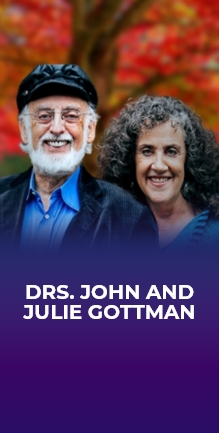In this Episode
- [02:21]Dr. Molly Maloof introduces the Adamo Method, a digital sex therapy program designed to improve couples’ sexual health and connection.
- [12:56]Dr. Molly outlines pelvic floor breathing, a technique that channels energy and blood flow to the pelvic area by expanding the pelvic floor through breathing.
- [15:30]Dr. Molly highlights the role of safety and attunement in sexual experiences, especially for those with a history of trauma.
- [22:33]Dr. Molly unpacks the neurobiology of love, including the role of sex hormones, dopamine, serotonin, and norepinephrine in passion and romantic love.
- [24:37]Dr. Molly underscores the value of creating novel experiences and rediscovering one’s partner to maintain passion and love.
- [27:21]Dr. Molly critiques the negative impact of pornography on sexual health, including its ability to degrade the capacity to feel romantic love.
- [31:03]Dr. Molly suggests insightful books to deepen understanding of sexual wellness and connection.
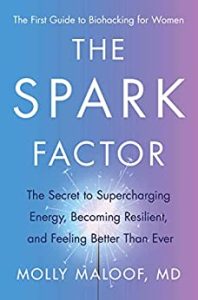
Dr. Molly, welcome back. Thanks for having me. So, tell us a bit about what’s been happening since episode 391, where you were talking about The Spark Factor. Now you’ve got this new Adamo Method. What got you into that?
Well, I realized that in the health optimization movement, health is not just about metabolic health. Our relationships play a huge role in our well-being and our disease. A lot of people are suffering from their relationship quality, or maybe even have a poor sex life. As a result, their lack of intimacy and connection creates a lot of ‘unsafety’ signaling in their home. Our homes are supposed to be our sanctuaries.
We’re supposed to be surrounded by people we love and trust, and many people get that in their relationships, but there are quite a lot of people in the world who truly struggle in their intimate relationships. As a result, we see quite high divorce rates. I think part of that is that we don’t look at our relationships as an area of optimization. We don’t look at our sex lives as an area of optimization. Like anything else, things you don’t put energy around don’t always thrive.
So, wherever attention goes or energy flows, and if our attention is not on having healthy, nourishing relationships, then as a result, we’re going to end up with challenges. I think many people put more emphasis on their home optimization and their cars than on their relational health. One of the things that separates a romantic relationship from a platonic relationship is sex. As a physician, I realized that I was very poorly educated in medical school on the topic of sexual health.
A lot of people are suffering from their relationship quality, or maybe even have a poor sex life. As a result, their lack of intimacy and connection creates a lot of ‘unsafety’ signaling in their home.
It just wasn’t really a part of our education. It’s briefly covered in the education of residents in family medicine or OB-GYN, and so it’s just really a missing piece of the health optimization puzzle. I really wanted to tackle it head-on. I had accidentally fixed my sexual dysfunction by using MDMA with a partner. It sounds a little irresponsible when you say it out loud, but I didn’t fully realize it more than a decade ago that MDMA had the ability to heal trauma.
Now, not every woman who has experienced sexual trauma develops PTSD. About 60 to 80% develop sexual dysfunction, and only 30% develop PTSD from a sexually traumatic experience. But what happens in sexual trauma is the brain gets wired for hypervigilance and fear in a context that’s supposed to be safe. So instead of being able to relax into a sexual experience, the body is in a state of hypervigilance and threat, and so it makes it very difficult to achieve orgasm.
I wanted to really figure out why I accidentally fixed my capacity to feel ecstasy and bliss outside of an altered context. What was it about that experience that I had with a partner that created such a shift in my brain so rapidly? Now, I’m not by any means, in this podcast recommending that everyone goes out and does MDMA. You live in Israel, and one thing you probably know, and maybe you don’t know this, is that a lot of the research done by the Multidisciplinary Association of Psychedelic Studies around PTSD was done in Israel.
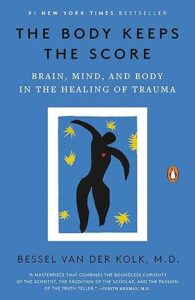
Israel is actually really very pro-psychedelic medicine and research, because there’s quite a lot of trauma in the Israeli culture. I’m Jewish, and anyone who knows anything about human history knows that there’s been a lot of trauma for Jews, and so searching for solutions for healing trauma has been something that has become a very big research area for science. My company initially started as a pharmaceutical company, and we were really developing MDMA alternatives that were safer and that were designed for intimacy, but obviously, we’re a long way away from these things getting commercialized.
And as it turns out, MAPS actually really struggled in their clinical studies to get MDMA approved as a drug for PTSD. But my company, all along, was basically trying to understand what love is. How do you measure it? How do you improve it? And what can actually degrade the capacity to love? Trauma can create a lot of invisible scars on people that can actually make it really tough to have a healthy sex life or a healthy relationship.
As a result of that, a lot of people are wandering around the world with a lot of tension in their bodies, a lot of tension in their pelvic region, and a lot of tension in their tissues. And as Bessel van der Kolk says, The Body Keeps the Score. We haven’t had a lot of good solutions until very recently for healing trauma and healing traumatic events. What a lot of people don’t realize is that one in four women are abused as children, one in three are assaulted in their lifetime, and one in five are raped.
One in four women are abused as children, one in three are assaulted in their lifetime, and one in five are raped.
There’s a really, really, really big issue going on, and I think that is affecting a lot of human relationships. So that’s really the backstory of why I got into this. Now, what it’s merged into is that we had to commercialize something because we didn’t want to give up on the mission. What we focused on was building a new sex therapy. The Adamo Method is a new sex therapy. It’s a digitally delivered program for couples that want to measurably improve their sexual health, so you don’t have to have a history of trauma to use this.
In fact, a lot of people who went through our program were perfectly healthy couples who just wanted to optimize their sex lives. We had people who had a history of challenges. We had a lot of people who had a history of sexual dysfunction, and we had a lot of people who were just healthy. What we found was that there was actually a statistically significant improvement in orgasm frequency, orgasm quality, and lasting time in men.
There were actually improvements in sexual satisfaction across the board, and many other areas of sexual health improved, including sexual communication, sexual confidence, and we actually measured love through things like the triangular theory of love, which is passion, intimacy, and commitment. We actually saw passion and intimacy improve. We already had a committed couple, so commitment stayed the same, but because that was one of the inclusion criteria for the study, we saw romantic love actually increase by 11% in couples, which was pretty significant.
We also saw basically a modern tool to measure love called the inclusion of others, and it’s two circles that overlap. We saw statistically significant standard deviation improvement in emotional closeness. So overall, I’d say we had a pretty successful drug-free study of our digital sex therapy program called the Adamo Method. And so you’re probably wondering, what is this thing we are doing?
Well, what we do is we have questionnaires that people go through to measure their sexual dysfunction, sexual function, sexual satisfaction, relationship quality, and their levels of love in their relationship. Then, we have people go through both training around their own relationship to their own sexuality, their relationship to their physical selves, their relationship to their emotional selves, basically, you can relate to sex both physically and emotionally, and obviously spiritually, too.
Erotic individuation is how you and your brain relate to your sexuality as an individual.
But we wanted people to actually have some background understanding of who they are as a sexually sovereign being. So there are two sorts of clear things that we teach people in the initial part of the program, which are sexual sovereignty and emotional, basically erotic individuation. So erotic individuation is, how do you and your brain relate to your sexuality as an individual?
And then sexual sovereignty is, how do you see yourself as a sovereign being that has boundaries and that has a body that deserves respect and deserves to be treated fairly and has its own desires and needs? We talk about the sort of your relationship to yourself, and then we go into practices that you can do with yourself to improve energy and blood flow to your pelvic floor, specifically teaching things like pelvic floor breathing and even just having a relationship to pelvic floor blood, people don’t even have.
Then we go into couples practices, where the couples learn to do pelvic floor breathing together, and then they learn, essentially, a course on penetrative sex. Now we could have covered things like oral sex. We could have covered things like manual sex, but we really wanted to cover the thing that we knew there was a lot of problems around, which is when people engage in penetrative sex, a lot of what they experience is sex that they’ve seen in porn.
Only 68% of women have an orgasm during each sexual experience, and that’s largely because there’s this huge orgasm gap.
Only 68% of women have an orgasm during each sexual experience, and that’s largely because there’s this huge orgasm gap, because men are essentially having sex the way that they want to experience pleasure, but that is not the same as what women want. A lot of men are kind of flying blind when it comes to female bodies, and they’re doing what they see and think is good based on porn.
A lot of women are doing what they see based on porn, and that was me in my 20s. Whenever I had sex, it was a performative act. But performative sex is not connected sex, it’s not great sex, it’s sex for an audience. Even if the audience is just your partner, that usually leads to a sense of disconnection and disembodiment. You’re not actually present for your partner or yourself, and so you’re not really engaged in this transcendent experience that sex can be.
What we wanted to do was take sexual mechanics and understanding of the human nervous system and marry that into a program that taught intimacy directly. The end result is that people have a lot more presence. People have longer experiences with their partner. People are taking orgasm off the table, and for some reason, having more orgasms because they’re more embodied, and we are really proud of just the program we’ve created.

Hopefully in the future, when psychedelics become part of modern medicine, we’ll be able to commercialize the nutraceuticals that we’ve created as well, which are powerful tools and embodiment and increasing sensation.
Wow. So these nutraceuticals are not part of the program.
Unfortunately, we can’t commercialize them because they are produced out of controlled substances. But what I was looking to build was the safest possible aphrodisiac. The unfortunate thing is that I made the best easy act you could ever ask for it for a woman in particular. They do work for men, but they work for women, I would say, particularly better because of how they were designed.
Sexual trauma creates invisible scars that can make it incredibly difficult to experience a healthy relationship. The brain gets wired for hypervigilance and fear in a context that's supposed to be safe. Share on XThey’re really designed to help close the pleasure gap, because basically, there are certain chemical combinations that will help slow a man down, but actually help speed a woman up. We found that combination, and it’s really, really, really, really frustrating, because I really do think that if we were to sell the combination of the products together, it would just be hugely successful. But we have to follow the government regulations, so we’re waiting for policy to catch up, and then we will reactivate the nutraceutical plague.
Awesome. Can you walk us through the pelvic floor breathing? What is that, and how does that work?
Everyone who might be listening might know that they have a diaphragm. When you breathe in, you feel your abdomen expand, right? The thing is that the abdomen, which is basically right below your chest, is your diaphragm for breathing. It’s your diaphragm for breathing, but your pelvic floor also has a diaphragm. If you actually just put your hand on your pelvic floor, you can feel that there’s an entire region that’s just made of muscle.

What you do is just like when you’re expanding your breath, and when you’re breathing in, you’re pushing out your pelvic floor, just like your abdomen is expanding. There are two diaphragms that are expanding. You’re pushing you’re breathing in, and you’re pushing out your pelvic floor, and then you’re relaxing. That push of the pelvic floor, when you’re breathing in, these two diaphragms that are expanding, you’re literally directing energy and blood flow to the pelvic floor. What that’s doing is that it’s actually creating more engorgement and more erection.
Women and men both have erectile tissue, with female erectile tissue on the inside and male erectile tissue on the outside. What a lot of men don’t realize is that female erectile tissue needs to be engorged through foreplay and proper breathing practices. But when people are masturbating, people are engaging in their own sexual expression alone. Oftentimes, when we grow up as children, we’re taught that masturbation is wrong, and so a lot of people, to have an orgasm, they tense up. They get really, really, really tense. That’s carried into the bedroom.
But what actually makes for ecstatic sexual experiences is not intense tension, but its intense capacity to relax the body and be able to let go. Letting go and that ability to engorge the pelvic floor is determined by the breath. To actually create a better sexual experience, you have to breathe. What we want to teach people is that it’s not just breathing with the breath in your chest, but it’s breathing with your pelvic floor, and it’s pushing out.
To create a better sexual experience, you have to breathe.
What you learn is that when you’re doing this during foreplay, you’re creating more sensation, more lubrication, more engorgement. You’re literally letting the body relax into pleasure, which is what creates a lot more sensation.
How does this relate to the book you mentioned, The Body Keeps the Score? That’s kind of a difficult book, because there are a lot of graphic examples in there that are hard to get through.
I really believe that sex is a healing modality in itself if you have a safe partner, a really good relationship. Sex can be a psychedelic experience. It can be a transcendent experience. It can be a place where you heal existing trauma. But safety is crucial, right? If a person has experienced ‘unsafety’ in their sexual life, starting from childhood to teenage years to college years to beyond, the body will start to guard, and it will begin to tense, and it will start to create armor around itself.
One of the things we do in the program is we teach pelvic floor mapping, and we have people learn how to map the pelvic floor with their fingers or with toys before they even engage with a partner. A really important reason why we engage in pelvic floor mapping is that there are a lot of people who suffer from tension, who suffer from numbness, and who suffer from pain. They don’t really even realize it until they bring attention to it, and then they’re like, “Oh my God, there’s so much of my body in this region that is not even alive. It’s just turned off.”
Consent embodied means that your body is consenting to the experience.
A big piece of what we’re teaching to people is how to do that pelvic floor mapping with yourself and then with your partner, because it can be a really beautiful way of creating knowledge of, “Okay, so this is what feels good for me, and this is what doesn’t feel good for me,” by yourself and with a partner, so that your partner can learn to read your body. A lot of the practices that we aim to teach people in the method are directly related to what’s called embodied consent, or consent embodied.
Consent embodied means that your body is consenting to the experience. What we teach people is things like what a yes looks like when you’re open, and what a no looks like when you’re closed. If everyone were taught this as a child, that no means no, you do not try to enter a partner, and that yes means open, they would actually have a lot less sexual trauma happen.
A lot of people don’t fully realize that a lot of sexual trauma begins in what is a consensual context. Initially, that becomes nonconsensual. But if someone has a history of trauma, their body might tense up and freeze in the midst of a sexual experience. If they can’t speak because they’re frozen, then what can happen is a person might not be able to read the body cues, and a frozen body is not a body saying yes, ever so unfortunately, men and even women can do this.
Attunement is crucial for love because it means you are reading and listening to me without even having me say something.
When people get really excited, they tend to want to go for what feels good, but they may not be actually tuning in and attuning to their partner. Attunement is really crucial for love, because attunement means that you are reading me and you’re listening to me without even having me say something. Attunement is really important for parent-child interactions. It’s really important for bonding. It’s how a child grows up and learns to recognize what is safe and unsafe.
But unfortunately, a lot of people have experienced traumatic parents who might have abused them, and so the person who was supposed to be safe is not sending them safety cues or attunement cues. That gets carried into the relationships, and it was a really big problem as adults. I don’t think we’re going to solve every problem through this method by any means. In fact, I think if you haven’t worked on your sexual trauma, you really need to see an EMDR therapist or a psychotherapist who’s basically trauma-informed.
There’s a good online company called Red Beard Psychotherapy with many trained therapists who can do a lot of stuff online. I would start with that before you do the Adamo Method. But I would say that the Adamo Method is great if you’ve already been working on your sexual health, and you’ve already made some headway, and now you really want to say, “You know what? I deserve more pleasure. I deserve to have more joy in my sex life, and I’m really ready to physically embark on a journey with my partner, to go through this with them.”
Why did you specifically suggest EMDR (Eye Movement Desensitization and Reprocessing) over something like tapping or CBT, or DBT?
The Adamo Method is great if you’ve already been working on your sexual health, and you’ve already made some headway.
I think CBT, DBT, tapping, and EMDR are all good tools. The truth is, you’ve got to try a lot of different things to find what works for you. I worked with a really great healer named Anthony Lemme, and you can find him on his website, anthonylemme.com. He’s like a world-class somatic therapist. There are a bunch of great somatic experiencing people out there. I’ve done a lot of somatic work, and let me tell you that my nervous system is a different nervous system than it was a decade ago.
It took me a lot of work on my nervous system to get to a point of feeling calm when I wake up in the morning. For those of you who wonder if that’s even possible, trust me, it is, but it does take effort. I think EMDR used to be considered the twackery a long time ago, but it’s actually developed quite a lot of research at this point. I do think that starting with something that you can do that’s not necessarily going to be triggering is really crucial. I think you need to kind of go stepwise into trauma therapy.
But honestly, I wouldn’t consider myself a total trauma expert. I have tried a lot of different modalities. I’ve done psychedelic medicine, somatic experiencing, trauma release exercises, and neural therapy.
I’ve had David Berceli on the show.

There’s a lot of stuff out there. The thing I would just want to recommend to anyone out there listening who has a history of trauma is that you have to keep working at it, because you know it’s no longer traumatizing when you’re no longer triggered. When you go back to this initial trauma and it doesn’t activate you, that’s your sign that you have been able to heal. When you can talk about something, and you’re not numb to it, but you’re not activated to it, and you’re not dissociated either—dissociated doesn’t count as healing.
It turns out, as someone who was dissociated in most of her 20s because of sexual trauma in my college experience, I know what dissociation looks and feels like, and it’s not healing. Healing is truly when you’re able to revisit the pain and you’re not turned into a triggered mess. I wish that I had listened to a podcast when I was in my 20s, and someone even mentioned these possibilities. The first step is creating the intellectual framework. CBT really does help with that. But intellectual frameworks don’t really fix the embodied problems that trauma causes. You really have to dig into the physical body, and that’s where I think somatic therapy is fantastic.
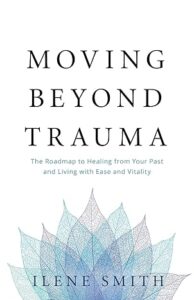
For our listener interested in digging further into this, I highly recommend listening to my episode where I interviewed Ilene Smith. She’s the author of Moving Beyond Trauma, which is all about somatic experiencing that episode in the book.
Great.
Fred Gallo, EFT expert, tapping expert, that was a phenomenal episode. I love David Berceli, the creator of Trauma Release Exercises (TRE).
That’s amazing. Oh, you’ve had them all on your podcast?
Yeah.
Oh, my God, I can’t wait. I’m gonna listen to all of these. This is a really, really fortunate podcast to listen to, because a lot of people don’t even know about these things. They’re struggling in their relationships, wondering about the thing I’ve thought a lot about lately. This is a kind of sidebar, and that’s not really a sidebar. It’s more of a thing you need to think about.
I want people to conceptualize sexual dysfunction in three ways. One is, I want you to think about the neurobiology of love. I’m going to explain it through the lens of the neurobiology of love. There are three facets of the neurobiology of love. The first is the sex drive. Iif you have dysfunctional hormones, like you’re hormone deficient, you’re low on testosterone, or you’re low on estrogen, or you’re high in or you’re low in progesterone, or you’ve got estrogen-progesterone imbalances, you’re not going to have a great sex life, because sex hormones determine your sex drive.
Healing is truly when you're able to revisit the pain and you're not turned into a triggered mess. Share on XFirst and foremost, a lot of women are going through perimenopause in their 40s, and they have no idea what they’re doing, because only 5% of doctors are properly trained and hormonally informed and know how to do hormone replacement.
The second thing is that a lot of men who have low testosterone don’t even get proper treatment for it. There are things like Clomid, and there are things like testosterone replacement. I think if you’re a young man, you really don’t want to do testosterone replacement. You want to do something more like Clomid because you don’t want to shut off your HPG axis.
Then, the next step is the actual relationship with your partner, which is the lack of passion. A lot of people have been married for a few years, and there’s just no passion left. The romantic love drive is largely driven by dopamine, first and foremost, serotonin, and norepinephrine. Norepinephrine is like the stress hormone. That’s like, “I can’t stop thinking about this person. I’m obsessed with them. I can’t eat, I can’t sleep.”
The romantic love drive is largely driven by dopamine, serotonin, and norepinephrine.
Then, serotonin is like, “Oh man, I feel so warm and fuzzy with this person. They are so great. They make me so happy.” Dopamine is like, “They are significant. They matter. They’re important. This person is really, really meaningful.” And you need all three to feel passion. So, what do you do if you’ve already kind of gotten habituated to your partner? Well, you do things with them that activate those hormones. So you actually activate novelty.
You do novel experiences. You do novel things together. You go to new places together. You put yourself in new contexts with them and experiment with creating the conditions for those hormones to be released, rather than expecting your partner to necessarily release them for you. That’s something that I don’t think a lot of people are taught.
Then, the third thing is, and then I guess part of the middle thing is the rediscovering of your partner. A lot of people think that they know their partners, but actually, you have to keep getting to know them, keep discovering new things about them, and realize there’s unending novelty in a person if you’re actually interested in them. So part of it is a desire.
You have to create the desire to be interested in this person rather than find your interest somewhere else, because that’s going to actually degrade your ability to have passion and love with this person. It’s going to degrade trust, and it’s going to degrade commitment. That’s the next piece, which is trust and commitment. Oxytocin is crucial for bonding. It’s crucial for relationships, crucial for attachment.

A lot of people have never done attachment work, and so if they don’t do work on their primary attachment wounds, it’s going to be really tough for them to have a great sex life with their partner, because they’re they’re going to keep rubbing up against their attachment wounds, which is not sexy, unfortunately, it’s really painful.
If you struggle with commitment and intimacy, you may need to focus on your avoidance. If you struggle with nervousness and anxiety, you may need to focus on your anxious attachment wounds, or maybe you’ve got a disorganized attachment wound pattern. But the commitment piece is also really crucial for creating a great sex life. So typically, it becomes more problematic early in the relationship until you’ve created that secure base.
By the way, I have a great episode of going into this avoidance and anxious attachment.
Who is on it?
I’ve done several. One was with Harville Hendrix, and another one was with Dr. Gottman.
Dopamine fuels passion. But it doesn’t come from routine; it comes from novelty, rediscovering your partner, and creating conditions for desire instead of expecting it to appear. Share on XOh my gosh. You literally had all of the best of the best. I don’t know how you do it, but you’ve really been able to get some of the best thinkers in the world on your podcast. I am so excited to dig into your podcast more. I’m really, really stoked to listen to all these episodes.
Oh, thank you. Thank you. I know we’re getting close to time, and I do want to touch on something that I think is kind of a hot button, especially in this high tech time that we’re living in, and that is porn. Porn is poison. Porn is absolutely toxic to everything. Well, it’s poisoning our culture around sex. It destroys intimacy. It destroys motivation. It destroys your spiritual connection to your higher power. It’s just awful.
And also really affects your sex life. When people get habituated to the dopamine hit of porn and the novelty of the weird stuff that they’re exploring in porn, unfortunately, you’re never going to be able to find that in a person, because no person can satisfy the multitude of what you see in a digital format. As a result of watching excessive amounts of porn, it actually degrades your capacity to feel romantic love to your partner, because you’re getting so much dopamine from the pornography that you’re not going to get nearly as much from your partner because you’re used to them.

I went to a conference around sexuality, and there was a big argument at the conference that porn is not as bad as people say it is. But I think that’s up for argument. There’s some argument by this psychologist that men who watch porn are more committed to their relationships. Still, I would say that probably what’s actually happening is they’re not actually addressing the elephant in the room, which is that their sex lives are suffering.
They’re turning to porn because they’re not addressing their sex lives. This gets into another topic. There have actually been papers written about this topic, which is, when women have children, their brain gets fundamentally rewired. It creates the conditions where a lot of their focus goes to keeping a child alive. And unfortunately, when the focus is completely on your child, this can become a really big problem for a relationship.
The one thing I will leave people with is that you actually have to invest in your relationship first. I was reading this great Wall Street Journal article about relationships, and it’s that you need to put your mask on first, and then you need to address your partner’s needs, and then you need to address your children’s needs. But unfortunately, our culture has created a complete focus on children, and when people become parents, they just overlook their own needs, and they overlook the needs of their partner.
It’s not surprising that a lot of parents are struggling with their relationship because their relationship is not a priority, and as a result, they end up seeing that their kids are not flourishing. But actually, a lot of times, their kids aren’t flourishing because the parents aren’t happy. My parents really showed me this firsthand. I never saw my parents put us above them. Their relationship was primary; we were always secondary.
Orgasms give us a more youthful existence.
My parents are still married, and my sisters are all in healthy relationships, and they’re also very successful women. I think there’s something to be said about flipping the switch on the focus. If you are not taking care of your biology and your health, how are you supposed to show up for your family when they need you? If you’re not taking care of your partner sexually, they might turn to porn or having an affair.
I think we need to look at our sex lives as a healthy part of maintaining a phenomenal relationship as we get older. And honestly, I think that Gottman, Hendrix, and a lot of these great, great relationship gurus are phenomenal when it comes to teaching the intimacy piece. But you really have to understand that sexual mechanics too, because you may be having sex with your partner for a decade, and they have never had an orgasm with you, and you may not even know it.
This happens, by the way, and I’ve met women who’ve gotten divorced specifically because they got so sick of having sex with their partner, because they weren’t getting their needs met. I don’t want to be brutally honest here, but I do think that as a culture, we need to look at sex like we do our fitness or our nutrition or our environmental health, or our air quality in our house.
It’s literally fundamental to our ability to thrive and survive in this world, and I just don’t think it’s prioritized enough. Oxytocin is an anti-inflammatory antioxidant. It protects your heart, it protects your brain, and it protects your mitochondria. So why wouldn’t we want to have more orgasms? It’s going to actually give us a more youthful existence.
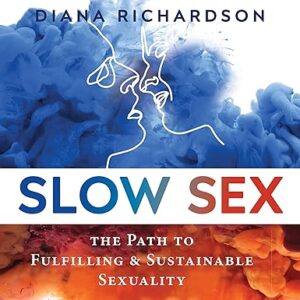
It’s like an experience of God.
It’s an experience of connection to God, and it’s part of a sacred marriage. I really think that if you really engage in deeply connected intimate sex, it’s not what you see in porn, it’s a lot honestly, but you want to read some great books on the topic. There are two really good books I would recommend. One is called Magnificent Sex. One is called Transcendent Sex, and there’s even a really cool book called Slow Sex that I really like.
I also recommend the courses by Aaron Michael and Saida Désilets, who are the co-creators of the Adamo Method, largely based on their careers and their luminaries in the space. They’re phenomenal thinkers, and I think they would be great guests on your podcast at some point, because they can really go into the depths of understanding sex as a sacred practice.
Amazing. Well, I know we’re out of time. This has been amazing. And if our listener or viewer wants to work with you, they want to go through the Adamo Method. How do we get them in touch?
Just go to www.livingadamo.com. It’s extremely affordable. It’s cheaper than a sex therapist. Even though we do, we actually do recommend, if you are struggling with really significant difficulties in your sex life, that a sex therapist is a great way to go too. But this would be used as an adjunct to that. A lot of sex therapy doesn’t really teach sex therapists sexual mechanics. So it’s a lot of psychological work, and this is going to cover both the psychological and the physical relationship to sex with your partner.
Awesome.
Thank you.
I’ll listen to the rest of your pod. Thank you so much for the recommendations.
Thank you. And thank you, listener, go out there and make it a fantastic week, and do something amazing for your partner, and learn this stuff and apply it in your life. We’ll catch you in the next episode. I’m your host, Stephan Spencer, signing off.
Important Links
Connect with Dr. Molly Maloof
Books
Businesses/Organizations
People
Previous Get Yourself Optimized Episodes










